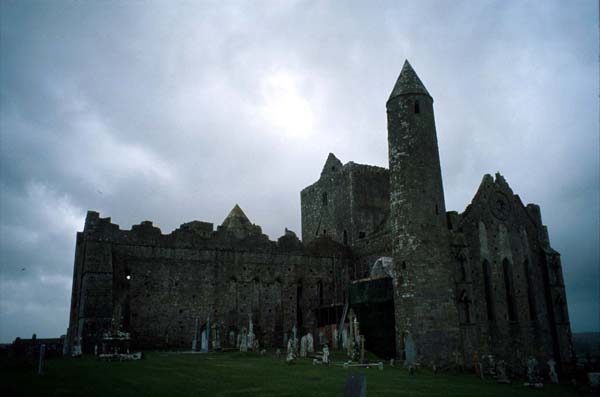
"In Memory of Major Robert Gregory"
Part Three: Stanzas VII-X
In the third section, Yeats makes a transition and begins to openly praise Robert Gregory. Yeats moves from praising the lives of other friends to displaying the great diversity of Gregory's talents, proving that he is, indeed, a true Renaissance Man. These three aspects of a soldier, scholar, and horseman relate to the mind, body, and spirit.
VII
For all things the delighted eye now sees
Were loved by him; the old storm-broken trees
That cast their shadows upon road and bridge;
The tower set on the stream's edge;
The ford where drinking cattle make a stir
Nightly, and startled by that sound
The water-hen must change her ground;
He might have been your heartiest welcomer.
Yeats begins this stanza by illustrating Gregory's great appreciation for life: "For all things the delighted eye now sees / Were loved by him." The rest of the stanza is deeply symbolic. The "storm-broken trees" refers to friends that Yeats has lost, and how their memories still cast "shadows" upon the world. They still continue to influence people from the legacy they left on earth. Referring to the tower in the next line, Yeats brings the reader back again to his world, one that he used to share with his dear friends. The next image of the cattle by the stream's edge symbolizes people on the verge of death. The "sound" is the shock and realization of death that the "water-hens," or loved ones, must encounter, and then they can adjust to a new life. Through this poem, Yeats is attempting to adjust to a new life without Robert Gregory.
VIII
When with the Galway foxhounds he would ride
From Castle Taylor to the Roxborough side
Or Esserkelly plain, few kept his pace;
At Mooneen he had heaped a place
So perilous that half the astonished meet
Had shut their eyes; and where was it
He rode a race without a bit?
And yet his minds outran the horses' feet.
Note: Yeats added this stanza at Lady Gregory's request. She felt that her son's memory would not be complete without additional information about his skillful horsemanship.
This stanza marks a transition in the poem from section VII to VIII. This part of the poem reiterates Gregory's amazing skill at hunting and horsemanship. Not only did he ride faster than everyone else, he was also daring, doing things other men feared to attempt. This stanza especially helps Robert Gregory's character seem more in touch with nature and seem more real. He is, however, raised to an almost mythical status when Yeats asks, "and where was it / He rode a race without a bit?" Even though he is no longer on this earth, his memory will last forever. This is one of the reasons that Yeats writes this poem; as a way to celebrate the life of his dear friend.
IX
We dreamed that a great painter had been born
To cold Clare rock and Galway rock and thorn,
To that stern colour and that delicate line
That are our secret discipline
Wherein the gazing heart doubles her might.
Soldier, scholar, horseman, he,
And yet he had the intensity
To have published all to be a world's delight.
The reader wonders what it would be like if Robert Gregory were still alive and what kind of accomplishments he would have made. As it is suggested in the first line, Gregory had the chance to become "a great painter." The phrase, "Soldier, scholar, horseman, he," is stated, further accentuating his well-roundedness. The courage and intensity of Gregory's character is also stressed in this section: "And yet he had the intensity / To have published all to be a world's delight."
X
What other could so well have counselled us
In all the lovely intricacies of a house
As he that practised or that understood
All work in metal or in wood,
Soldier, scholar, horseman, he,
And all he did done perfectly
As though he had but that one trade alone.
The phrase "Soldier, scholar, horseman, he" is a common theme that continues through these sections, reiterating that Gregory is a man of many talents. Again, the idea of Gregory as a Renaissance man comes into play. Yeats asks, already knowing the answer, what other person could have accomplished the things that Robert did. Yeats knows that there is no one else like Gregory. As a true Renaissance man, he knew how to do everything: "As he that practised or that understood / All work in metal or in wood." Nothing was out of his range, and Yeats attempts to show this again in the stanza. As the poem moves on, Yeats will evaluate his ability to use words to praise such a great man.
